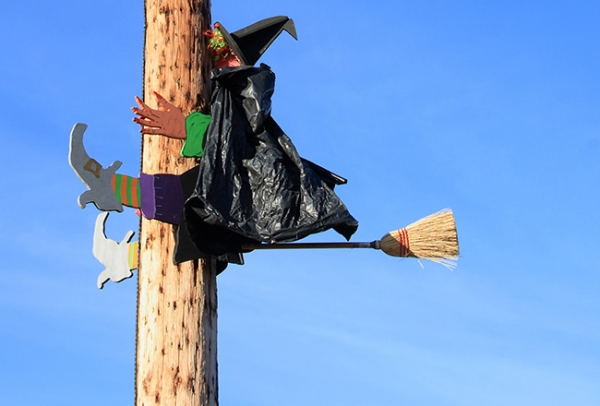
By Sheryl Giordano
While Halloween can be one of the most fun and exciting holidays for children and parents alike, there are several safety precautions that must be taken. Kids should always know your family rules before trick-or-treat night comes. Read on for parenting tips for a safe Halloween.
CARVING A NICHE:
Small children should never carve pumpkins. Children can draw a face with markers. Then parents can do the cutting. Consider using a flashlight or glow stick instead of a candle to light your pumpkin. If you do use a candle, a votive candle is safest. Candlelit pumpkins should be placed on a sturdy table, away from curtains and other flammable objects, and should never be left unattended.
HOME SAFE HOME:
To keep homes safe for visiting trick-or-treaters, parents should clean up the porch and front yard. Be sure to remove anything a child could trip over such as garden hoses, toys, bikes and lawn decorations.
Parents should check outdoor lights and replace burned-out bulbs. Wet leaves, gravel from the driveway or any debris should be swept from sidewalks and steps.
Restrain your pets so they do not inadvertently jump on or bite a trick-or-treater. You may want to keep them in a closed room or garage, especially away from the front door during your neighborhood's trick-or-treating hours. Too many noises and strangers dressed in costumes can be stressful for pets during trick or treat time, and unless you want a barking dog to scare away your guests, this may be a better option.
ON THE TRICK-OR-TREAT TRAIL:
A parent or responsible adult should always accompany young children on their neighborhood rounds.
If your older children are going alone, plan and review the route that is acceptable to you. Agree on a specific time when they should return home. Only go to homes with a porch light on and never enter a home or car for a treat. Teach children how to call 9-1-1 (or their local emergency number) if they have an emergency or become lost. Law enforcement authorities should be notified immediately of any suspicious or unlawful activity.
Because pedestrian injuries are the most common injuries to children on Halloween, remind Trick-or Treaters of these Walking Safety Tips:
HEALTHY HALLOWEEN:
A good meal prior to parties and trick-or-treating will discourage youngsters from filling up on Halloween treats. Consider purchasing non-food treats for those who visit your home, such as coloring books or pens and pencils.
Don't eat any candy until you can inspect all items! Wait until the kids are home to sort and check treats. Though tampering is rare, a responsible adult should closely examine all treats and throw away any spoiled, unwrapped or suspicious items. And last, but not least, try to ration treats for the days following Halloween. We don't want any upset stomachs from too much candy on Halloween night!
Related Article: 10 Non-Candy Halloween Treats Try these 10 treat ideas for Halloween instead of candy!
Sheryl Giordano, MSN, APRN-C is a Nurse Practitioner and Program Coordinator for The Johns Hopkins Hospital.
All content on this Web site, including medical opinion and any other health-related information, is for informational purposes only and should not be considered to be a specific diagnosis or treatment plan for any individual situation. Use of this site and the information contained herein does not create a doctor-patient relationship. Always seek the direct advice of your own doctor in connection with any questions or issues you may have regarding your own health or the health of others.
References: American Academy of Pediatrics. (2010); The American Society for the Prevention of Cruelty to Animals (ASPCA) (2014) "Halloween Safety Tips." Retrieved on-line 27 Oct 2011 and 10 Oct 2014.
More Halloween Related Articles: